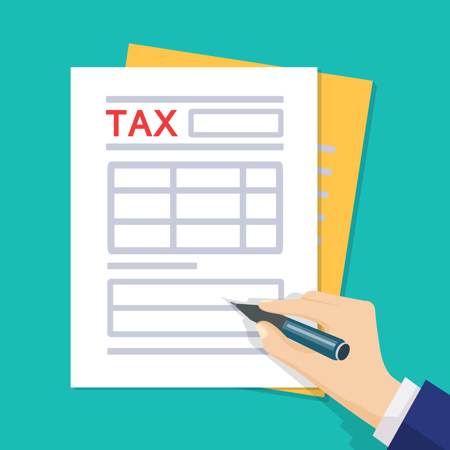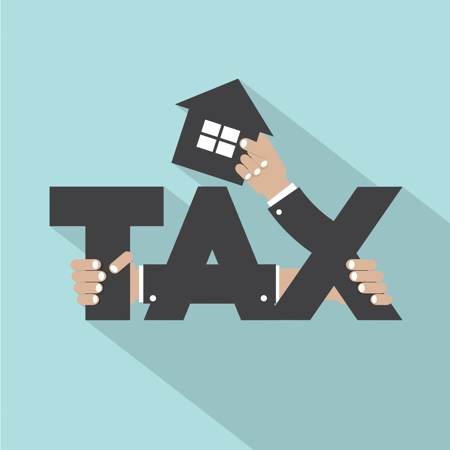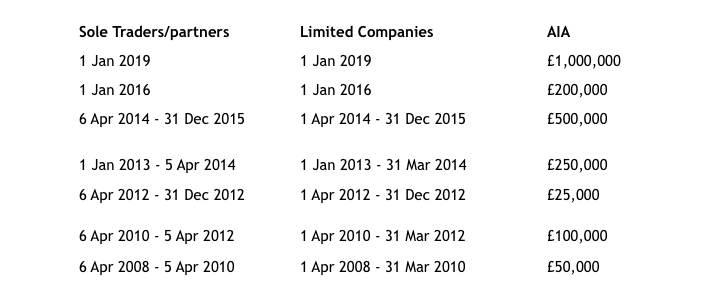Annual Investment Allowance explained: Tax relief for small businesses
 The Annual Investment Allowance (AIA) is a form of tax relief that allows businesses to claim 100% of expenditure on specific categories of machinery and plants. The allowance is intended to encourage small to medium-sized businesses to invest, with a vision to stimulate growth in the UK economy.
The Annual Investment Allowance (AIA) is a form of tax relief that allows businesses to claim 100% of expenditure on specific categories of machinery and plants. The allowance is intended to encourage small to medium-sized businesses to invest, with a vision to stimulate growth in the UK economy.
What has changed?
The government has recently made a sizeable increase to the claim allowance, from £200,000 to £1,000,000 for the next two years. There have been many changes to the AIA since its introduction in 2008 but this is the most significant.
This large increase is designed to encourage your business to invest in the equipment that will help you grow. At TaxAgility, we have a team of specialised accountants for small business with years of experience in helping businesses to grow. We’re here to help you understand how your business can make the most of 2019, starting with your AIA claims.
Changes to the AIA
What can be claimed?
You can claim on ‘plant and machinery’ used in the course of your business. This can include computers, telecommunication and surveillance systems, safes, fire alarms and burglar alarm systems.
How does it work?
If you purchase ‘plant or machinery’ that qualifies, you can deduct the cost of that asset from your business’ profits before calculating tax on your profit.
For example, if you bought a £2,000 computer for your business and your annual profits came to £55,000, you would only pay tax on £53,000. (£55,000 - £2,000 = £53,000)
Get help from tax accountants
Take advantage of this new increased allowance and don’t miss out on other forms of tax relief. At TaxAgility, our small business accountants are happy to discuss tax relief with you.
Apart from tax relief, you may also be interested in:
- Accounting and bookkeeping specific to small business
- Tax specific to small business
- Payroll service for small business
- VAT specific to small business
Get in touch on 020 8108 0090 or use our Online Form.
This blog is a general summary. It should not replace professional advice tailored to your specific circumstances.
How does HMRC expose tax evasion and avoidance?
 Over the last few years, the UK government has been making plans to clamp down on tax avoidance and tax evasion, with the latest package of measures announced in Budget 2018.
Over the last few years, the UK government has been making plans to clamp down on tax avoidance and tax evasion, with the latest package of measures announced in Budget 2018.
Also, the new strict liability offences for offshore tax evasion came into effect in 2018. This means failing to declare offshore income of more than £25,000 is now a criminal offence – the term ‘strict liability’ means HMRC doesn’t need to prove ‘mens rea’, that a taxpayer has criminal intent before they can be convicted of a criminal offence such as tax evasion.
In this post, we look at what HMRC can do to catch those who aren’t paying their fair share of tax and discuss a few methods which HMRC uses to find tax dodgers.
Connect
Introduced in 2010, Connect is the name of HMRC’s powerful computer system, designed to detect those who skip out on tax. It takes in vast amounts of financial data from websites, banks and other online sources, and then compares them against tax returns to look for undeclared income. For example, if you recently purchased an expensive car but have a low declared income, then Connect would see that purchase as unlikely and raise a flag.
As of 2017, HMRC can also force online platforms such as Airbnb and Amazon to relinquish customer data if it may help in catching tax evaders, and they are now cooperating with offshore tax havens to gather even more information. This makes it almost impossible to hide information from the system.
The “Offshore, Corporate & Wealthy” unit
The ‘Offshore, Corporate and Wealthy’ unit is a team of people tasked with tracking down those who use offshore accounts to avoid tax. They form part of HMRC’s Fraud Investigation Service, and look for either individuals or companies that hide significant wealth offshore.
The 2018 budget also stated that the government will publish an updated offshore tax compliance strategy, building on the progress already made in tackling offshore tax evasion.
Fraud hotline
People can give HMRC a call to report tax fraud and tax evasion. The numbers are 0800 788 887 (UK) and 0203 080 0871 (outside the UK). You can also report it online, or write to HMRC at Cardiff CF14 5ZN. Some informants are rewarded, and according to a post published by Financial Times, in the 2017-2018 tax year, there were 40,000 tip-offs and HMRC rewarded these informants with £343,500.
Data leakage
From Panama Papers to Paradise Papers, these documents revealed how rich people and close associates of many current and former heads of state and government launder money and avoid tax. Even the Queen was dragged into the scandal when the Paradise Papers revealed that millions of pounds from her private estate Duchy of Lancaster were invested in a Cayman Islands fund, sheltered from UK tax. According to ICAEW (Institute of Accountants in England and Wales), as a result of these leaks, HMRC has investigated many individuals in relation to tax evasion.
Contact TaxAgility
As HMRC aims to minimise the ‘tax gap’, ie the difference between the amount of tax it should receive vs what it actually received, it will continue to strengthen its policies and enhance the methods it uses to stop tax evasion.
In the event that you have forgotten to notify HMRC about your offshore income, get in touch with one of our experienced tax accountants right away, so we can work with you to notify HMRC and ensure that the return is correct.
To find out more about how we can help save you money, get in touch on 020 8108 0090 or fill out our Online Form.
If you found this article useful, you might want to check out:
This article was first published on 19/12/2012 and updated on 23/01/2019.
This post is intended to provide information of general interest about current business/ accounting issues. It should not replace professional advice tailored to your specific circumstances.
Self Assessment penalty: what happens if you miss the self assessment tax return deadline?
 When it comes to Self Assessment, there are two things you must know – the deadlines for paper and online tax returns respectively, and the penalties if you miss the deadline.
When it comes to Self Assessment, there are two things you must know – the deadlines for paper and online tax returns respectively, and the penalties if you miss the deadline.
The gov.uk site breaks down the deadlines for you:
- Self Assessment paper tax returns by 31 October
- Self Assessment online tax returns by 31 January
- Pay the tax you owe by 31 January
Also, for those who are self-employed or sole trader, not self-employed or registering a partner or partnership, the deadline to register for Self Assessment is 5 October.
This post looks at what happens if you miss the deadline for submitting your tax returns or paying your bill.
Self Assessment penalties
If you miss by one day and up to the first three months, you’ll be charged £100, no matter what. Even if you do not owe any tax, you can still be fined.
After the initial three months and up to six months late, you’ll be charged £100 plus £10 each day up to a 90-day maximum of £900. In short, the maximum fine could be £1,000.
After the initial six months and up to nine months late, you’ll be charged the penalty above, plus a fine of either £300 or 5% of the tax due, whichever is higher.
You will pay more if it is later and the HMRC site has a page where you can estimate your penalty for late Self Assessment tax returns and payments.
Appealing the penalty
You can appeal the fine if you have a valid reason or reasonable excuse for submitting the return late.
According to the gov.uk site, the following may count as a reasonable excuse:
- Death of a partner or a close relative shortly before the tax return or payment deadline
- An unexpected stay in hospital
- A serious or life-threatening illness
- Failure of your computer or software
- HMRC online service issues
- A fire, flood or theft
- Postal delays
- Delays due to a disability you have
HMRC will not consider your appeal if your excuses include someone else had failed to submit your return, you didn’t have enough money to prevent a bounced cheque, you found the HMRC online system too difficult to use, you didn’t get a reminder from HMRC or you made a mistake on your tax return.
Sort it today with TaxAgility
Tax returns can be a daunting process and submitting a day late can see you paying a financial penalty. Speak to our expert tax accountants from TaxAgility to help you get it right and file your return before the deadline.
To find out more, or to take advantage of our free, no obligation first meeting, get in touch on 020 8108 0090 or fill out our Online Form.
This article was updated on 16 Jan 2019.
This post is intended to provide information of general interest about current business/ accounting issues. It should not replace professional advice tailored to your specific circumstances.
Are you planning for your next generation of customers?
 As Baby Boomers and Generation X approach retirement, Millennials and Generation Z are fast becoming the new demographic segments for businesses to court. Gen Zers, now entering teenage and young adulthood, in particular are set to dominate when it comes to purchasing power in the upcoming decades.
As Baby Boomers and Generation X approach retirement, Millennials and Generation Z are fast becoming the new demographic segments for businesses to court. Gen Zers, now entering teenage and young adulthood, in particular are set to dominate when it comes to purchasing power in the upcoming decades.
The new generations differ markedly in their consuming habits from their predecessors both in motivation and methods. For small businesses that want to court this new generation of clients, it is vital to plan ahead and adapt your marketing to stay relevant. As business growth specialists, TaxAgility can show you how to cater your business to the most influential generation of our time.
Marketing to the ‘Digital Native’
Born from the early 1980s and mid-1990s respectively, Millennials and Generation Z are defined by their affinity to digital technology. As pioneers and natives in an age of computers and the Internet, these are consumers who understand advertising very differently from the preceding Boomers and Gen Xers. The advancements in computing and mobile technology have only widened this divide.
Most businesses today have some kind of online presence in the form of a website or corporate accounts on social media platforms, but unless they take into consideration the Internet habits of Gen Z, they may not be getting through to the notoriously elusive demographic. This is a group that is most comfortable doing everything on their phones. However, studies also show that many of them dislike intrusive online ads.
The most successful advertising campaigns that have worked in the internet age generally share two characteristics: shareability and individual-ness. This has given rise to the social media ‘influencer’: these are thought-leaders in lifestyle, fashion and other fields who deliver personalised information about products to their followers. This is one reason that social media advertising has become so popular – hashtags allow users to find and follow trends and attributes that interest them. If you’ve heard of the term ‘viral marketing’ you’ll realise that it often describes the dissemination of hidden adverts such as this.
It’s worth looking at your small business’s current advertising strategy and evaluate whether they meet these criteria – if they don’t, you’re likely missing out on a lot of awareness and potential sales.
Keeping Up with the Digital Joneses
Many modern advertising strategies are constructed around the tried-and-tested method of pitching the product. This was the style that worked with the earlier Baby Boomer generation, and it is a strategy that is dwindling in appeal along with its intended audience. An advertising strategy that engages the new generation has to be conceived from the ground up – you cannot simply repurpose your existing ad campaign for the internet and expect it to go viral.
Consider your story and the identity of your company. You’re looking to build a personality, to tell a story about your small business, and once you’ve planned your journey, you can begin to form a marketing strategy around telling it. Remember the key factors of shareability and individual-ness, they may not be absolute rules, but you will do well to bear them in mind when advertising to your customer base. Consider whether your advert could pass as a piece of content – if it looks like an advert at the outset, then there’s a good chance for it to be blocked or skipped.
Look for professional help
While Gen Z is gearing up to be the most profitable target demographic, it’s also proving the hardest to reach. As specialist small business accountants, we at TaxAgility have plenty of experience in helping new businesses connect with Millennial and Gen Z customers, and we can help you form a plan that will future-proof your business for years to come.
To find out more, get in touch on 020 8108 0090 or fill out our Online Form.
If you found this article useful, you might want to take a look at:
This post is intended to provide information of general interest about current business/ accounting issues. It should not replace professional advice tailored to your specific circumstances.
Property Tax
 Tax is a complicated subject and property tax is no exception. If you own a property or planning to own one, tax planning becomes important because buying, selling or renting out your property is likely to expose you to some form of property tax. In this article, our specialist tax accountants explain:
Tax is a complicated subject and property tax is no exception. If you own a property or planning to own one, tax planning becomes important because buying, selling or renting out your property is likely to expose you to some form of property tax. In this article, our specialist tax accountants explain:
- Stamp Duty Land Tax
- Capital Gain Tax
- Tax on rental income
Stamp Duty Land Tax
When you buy property, you must pay Stamp Duty Land Tax (SDLT). The amount you pay depends on several factors such as if you’re replacing your main residence, buying an additional property, buying a non-residential property, and if the property is freehold or leasehold.
If you are a first-time buyer, then you don’t pay SDLT on properties up to £300,000, and only 5% SDLT on anything between £300,001 and £500,000. If your property is worth more than £500,000 then you will be taxed as though you had already bought a home.
A common question relating to SDLT is if one can reduce the SDLT liability by using a company to purchase a property. The answer is generally no because HMRC applies a 15% SDLT on residential properties costing more than £500,000 if bought by a company, although there are conditions where the 15% rate does not apply, such as when the company acts in its capacity as a trustee of a settlement and purchases a chargeable interest in a residential property. To find out how you can reduce your SDLT liability legitimately, it’s best to discuss your situation with one of our experienced Tax Accountants.
Capital gains tax on property
Whenever you sell a property that has appreciated in value, you may be taxed on the profit that you make. This is capital gains tax and it typically applies to property that’s not your main home, such as buy-to-let property, business premise, land and inherited property. If you sell your home or if you live abroad, different rules will apply.
Like other taxes, there are situations where you can get a tax relief or don’t have to pay capital gain tax on property. For example, you do not need to pay tax on assets you give to your spouse or a charity as a gift.
In the event that you are liable for capital gains tax, how much you need to pay depends on how much capital gains tax allowance you have in that financial year. The good news is, the amount of annual capital gains tax allowance, aka the annual CGT exemption, has been increased by the government over the years and for the 2019/2020 tax year, you can make tax-free capital gains of up to £12,000 and couples who jointly own assets can combine this allowance.
Get in touch with us if you would like to understand more about capital gains tax and the relief associated with it.
Tax on rental income
In its simplest sense, you pay income tax on the profit you make from renting out your property. Additionally, you can also deduct finance cost (mortgage interest, interest on loans to buy furnishings, overdrafts) from rental income, but HMRC has begun to restrict this from 2017 with a mixture of old and new rules and from the tax year 2020-2021 onwards, as a residential landlord, you will get a flat rate of 20% deduction of these costs from your tax liability. The upshot of this is you will be paying more tax and receiving a smaller net profit from your rental income, particularly if you’re a landlord who already has a higher income.
One legitimate tax-efficient way to handle tax on rental income is to set-up a limited company and take advantage of corporation tax rates and dividend tax rates, which are lower than income tax and capital gains tax rates.
Contact the experts
Property tax is immensely complicated and there are numerous reliefs subject to specific conditions which may not be obvious to a property owner. At TaxAgility, our tax accountants excel in personal tax planning, and we’re always available to discuss income tax, trusts and estates, inheritance tax and capital gains tax with you.
Get in touch on 020 8108 0090, or contact us via our Online Form.
This post is intended to provide information of general interest about current business/ accounting issues. It should not replace professional advice tailored to your specific circumstances.

